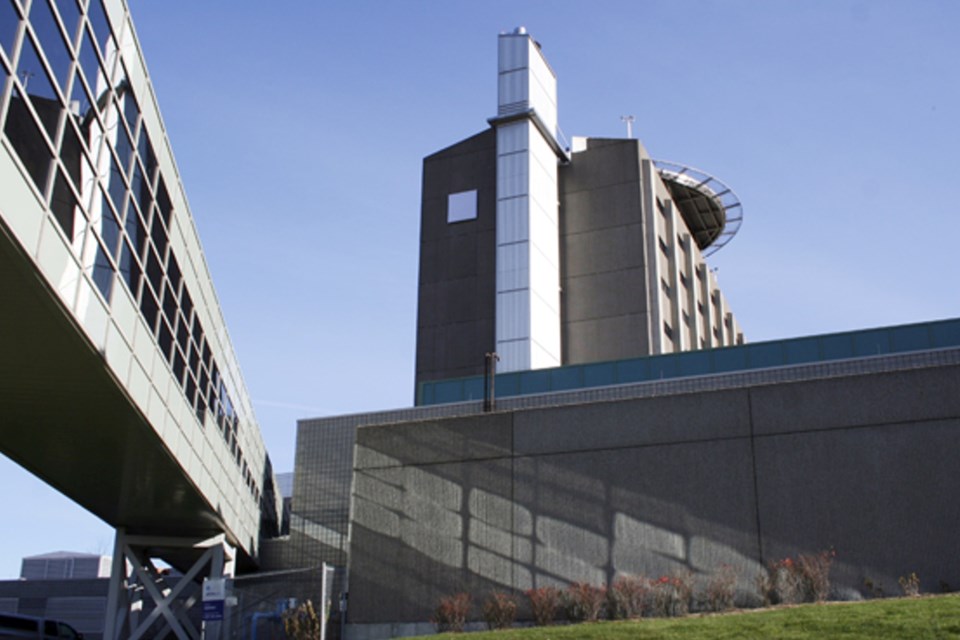Health Sciences North (HSN) in Sudbury, the largest hospital in Northern Ontario, said it is taking steps to address the current staff shortage there.
The shortage issue has been the focus of sharp criticism from health-care unions, politicians and members of the public through social media.
HSN said new efforts are underway to cope with the shortage and the backlash.
This includes things like voluntary standby, paying shift incentives for call-ins, paying licence fees for new nursing graduates, and inviting recent retirees to come back and help out or to mentor new staff.
"Like other hospitals in Ontario, HSN has been experiencing significant staffing challenges across our organization particularly over the last two months in acute, emergency and critical care areas," said HSN communications manager Jason Turnbull.
"There are many reasons for the current provincial staffing situation including retirements, people choosing other employment options and a limited number of new graduates to recruit."
A search of the HSN Careers webpage on Monday showed more than 100 job postings. This includes postings for 37 registered nurses, 16 registered practical nurses and 51 other hospital positions. HSN employs roughly 4,000 workers.
In his email response to Sudbury.com, Turnbull acknowledged the shortages have caused challenges.
"Staffing shortages make it challenging for patients and families as they access care at HSN. Staffing shortages also create difficulties for our front line staff particularly when the volume of patients and the acuity of illness has returned to pre-pandemic or higher levels," Turnbull said. At the same time, he said the hospital extends gratitude to all of its workers "who continue to provide the best possible care under these difficult circumstances."
Turnbull added that the hospital has been working to address these challenges in the last several months. This includes daily meetings.
"Our leadership teams met in May to develop plans targeting our staffing shortages and developing recruitment plans to bolster our frontlines," he said.
"Staffing levels are assessed twice daily for all in-patient units and where absolutely necessary staff reassignment to units most in need is initiated," he added.
In addition, he said a Staffing Resource Team was created to support HR planning and optimize use of the provincial programs for Community Commitment Program for Nurses (CCPN), Nursing Graduate Guarantee (NGG) and Extern Programs (clinical students).
Turnbull outlined some of the other initiatives HSN is working on.
"Where there is interest, part-time staff have been offered full-time, permanent positions. Recent retirees are being approached to return in roles that suit their interests, take advantage of their extensive experience in providing care to patients or and/ or to mentor new staff. An additional 13 PSWs have been hired to provide non-nursing supports on units that are regularly short staffed and ensure that nursing staff are able to focus on nursing duties," he said.
In addition to that, the hospital has recruited 48 nurses since May 2022 with more planned to start in the fall. New graduate license fees are being paid to attract new graduates to HSN, Turnbull said.
In an effort to stabilize staffing within in-patient units, HSN is temporarily seeking interest from RNs and RPNs to participate in Voluntary Standby with associated financial incentives especially when called in for work, he added. For the longer term HSN's academic affairs department is working with colleges and universities to optimize student placements.
"These actions are not going to be a cure-all for a health care system that’s been experiencing systemic challenges for many years – and a workforce that has faced unparalleled challenges the past two and a half years," Turnbull said.
"However, we are hopeful these actions will help alleviate the immediate pressure facing our teams so they can care for our patients and families, as we continue to work on longer-term recruitment and retention."
Len Gillis covers health care and mining for Sudbury.com.
